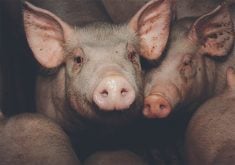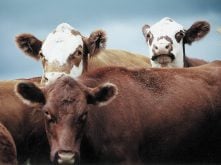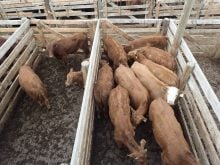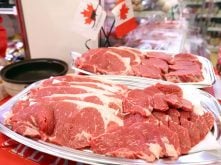A top dairy farm in Manitoba has embraced the Fleckvieh breed as a way to establish a hardy herd without sacrificing milk production.
The experiences of that farm are tempting other dairy farmers to do the same.
Albert Nyhof and his family at Lorette, Man., were introduced to the potential of the Fleckvieh breed a few years ago. At the time, they already were achieving high milk production with other breeds so they were cautious about changing their herd’s genetics.
“We were a little careful,” said Albert, who farms with his wife Wilma, sons John and Henry, and herdsman Gladwin Laing. “I saw a lot of benefit in it, but we had a lot to risk.”
Read Also
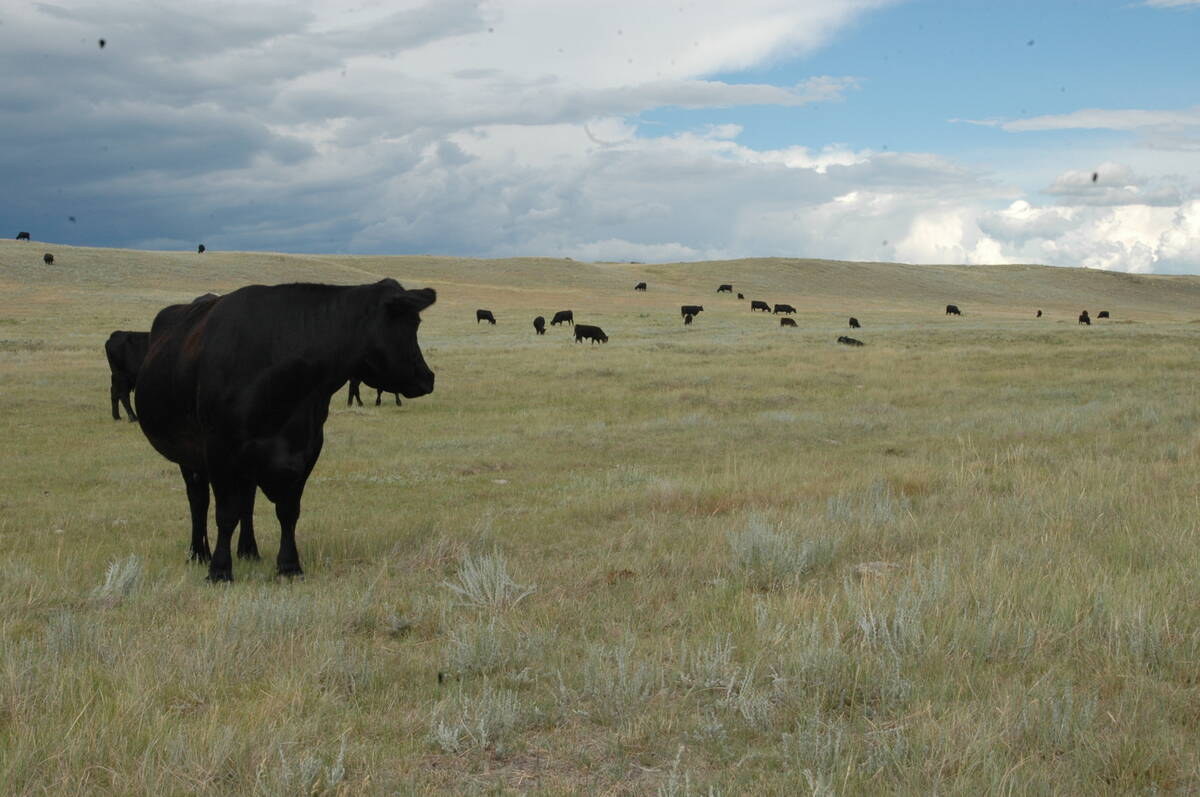
Saskatchewan Cattle Association struggles with lower marketings
This year’s change in the provincial checkoff has allowed the Saskatchewan Cattle Association to breathe a little easier when it comes to finances.
Their past four years have convinced them that the Fleckvieh breed is ideal for their dairy farm.
Albert sounds confident that milk production will remain equivalent to what it was in the past, and he also is confident that the breed will result in animals that are more vigorous and less prone to health and fertility challenges.
“I like the strength of the cows. They are, to me, ideal.”
The Nyhof farm was introduced to Fleckviehs by Werner Popp, who had travelled to Germany with his son, John, five years ago to investigate genetics that would suit their beef herd near Erickson, Man.
While there, the Popps learned of Bavarian Fleckvieh Genetics, a company promoting Fleckviehs tailored to the dairy industry in Europe. The Popps met Thomas Grupp, the manager and leader of Bavarian Fleckvieh Genetics, and he decided to travel to Canada to learn more about the dairy industry here.
Grupp included the Nyhof farm in his visit to Canada. During that visit, the Nyhofs became interested in the potential of Fleckviehs. Albert followed up with a trip to Germany to see for himself how the breed performed in European dairy herds.
He saw cattle strong enough to perform well, even in cramped housing. His investigations convinced him that he could improve his dairy herd without sacrificing milk production.
The Nyhofs now breed 95 percent of their cows with Fleckvieh semen. They are also milking a fullblood Fleckvieh cow derived from an embryo from Bavarian Fleckvieh Genetics.
Albert predicted that milk production from that fullblood, named Rubine, would approach 10,000 kilograms after 305 days of milking.
He said milk production from Fleckvieh dairy cows may not be as high as Holsteins earlier in the lactation but it does not taper off as much toward the end of the lactation cycle.
“My expectation is the milk pro-duction will be exactly the same. The Fleckviehs do have a lot of milk production too.”
Tickle Me was the name the Nyhofs gave to their first heifer born from a cross between Fleckvieh semen and one of their Holstein cows. Tickle Me is now two years old and was producing 38 kg of milk per day as of April 21.
“I think the hybrid vigour is tremendous,” said Albert. “The crossbreds are awesome.”
There are four breeds prominent at the Nyhof farm Ñ Holstein, Jersey, Brown Swiss and the Fleckvieh crossbreds.
Albert describes the Fleckviehs as aggressive grazers with sound feet and legs. He is seeing better survival in the calves and says crossbred animals are healthier.
Also important is the fertility, which increasingly has been a challenge for the dairy industry in Canada.
Since using Fleckvieh, the Nyhofs have required 1.8 services per conception, which is down from the 2.6 services that they were used to. That should enable them to reduce their intercalving period from 14 months.
According to the Popps, many dairies in Germany with the Fleckvieh breed are running intercalving periods of 12 to 12.5 months.
Producers in Europe also are reporting lower somatic cell counts in the milk, which indicates a healthier herd.
The calves of Fleckviehs can convert feed with the efficiency of beef cattle. That means they can reach a finished weight three to four months earlier than a Holstein calf, according to the Popps.
There are 40 dairy farms in Canada and the United States incorporating Fleckvieh genetics into their herds.
Contacts: Werner or John Popp, 204-636-2387 or 2665, or e-mail bigbeargenetics@mts.net.



